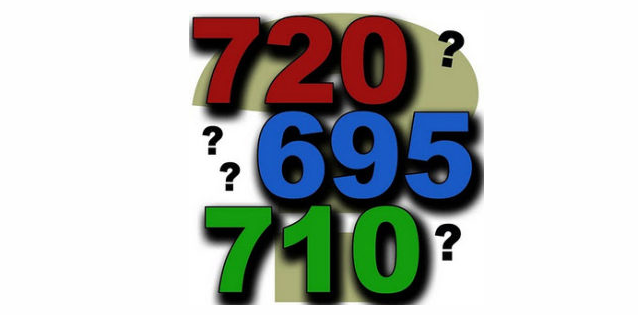The 3 major credit bureaus may contain different information about your credit history – This can result in 3 very different credit scores.
Question: I recently applied for a mortgage and was surprised to see my credit scores were very different from each of the 3 credit bureaus. I thought they would be about the same across all three. The lender said they are going to use the middle credit score but the problem is it’s about 30 points lower than the highest score. Why are my scores so different and is there anything I can do to get the middle score higher?
Answer: Experian, Equifax and Transunion are the three major credit bureaus in the U.S. These major credit bureaus are in competition to obtain, update and store credit histories on most consumers for a variety of businesses; including banks, lenders, credit card companies, insurance companies, collection agencies, landlords and more.
There can be differences in what information is obtained by each of the major credit bureaus. The information captured is not shared among the three major credit bureaus. One credit bureau can have unique information on a consumer that is not being reported by another credit bureau.
Even though the credit score used by the three major credit bureaus are all based on the FICO scoring system all of your credit information may not be reported to all three credit bureaus. For instance, many credit unions based in California use Experian exclusively. If you have an auto or personal loan it may only be reported to Experian; and, any information negative or positive about your payment history will only be updated and stored by Experian.
There can be an upside and a downside to credit history only being reported to one credit bureau. The upside is that if you have a negative account history or a collection account being reported to just one credit bureau, the likelihood of your credit score being better at the other credit bureaus is high.
The downside is that you cannot always determine what creditor is going to use which credit bureau. And, in the case of a mortgage or auto loan most banks and lenders will pull all three of your credit scores.
The information on your credit report is supplied by lenders, collection agencies and court records. Don’t assume that each credit bureau has the same information pertaining to your credit history.
In order to get your middle score up, concentrate on any negative information that may be on that credit report that is affecting your score. Look for late payments, collection accounts or charge-offs. Use strategies such as good-will letters to deal with late payments and charge-offs. For collection accounts consider disputing them or if possible offer a pay for delete.
Also, look at your balance to credit limit ratio. If you have any credit card balance that is near its credit limit that can definitely lower your credit score. If possible, pay down your credit cards to 10 percent or less of your available credit limit. Your score will increase. After you have worked on some of the above strategies request your lender rapid-rescore your credit files.
The best of luck to you.
















